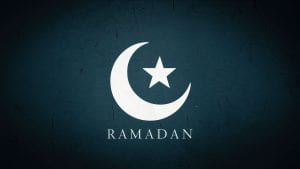Spring is right around the corner and with this calendar season comes a season of religious holidays. DePaul is committed to supporting its multifaith community and one way we do that is by recognizing the importance of religious holidays that many within our community celebrate this spring. Following is a brief description of holidays that are being celebrated. Please note that each description also includes a bit of information regarding possible accommodations that faculty and staff are encouraged to consider.
 Ramadan
Ramadan
This past Sunday evening, the Muslim community began the holy month of Ramadan, a time of communal daily fasting from dawn to sunset. As the fast is daily broken, family and friends gather for Iftar, a community meal and prayer. Along with fasting the Muslim community also engages in charitable giving with both fasting and giving commemorating the time when the Qur’an was revealed. Ramadan continues through the month until the sighting of the moon and the holiday of Eid-al-Fitr, which is expected to be on April 10th this year.
As Muslim students come to class, they may be feeling the effects of fasting. Professors are encouraged to keep this in mind and practice grace and understanding. It is also recommended that students, faculty, and staff plan ahead and engage in mutual planning with professors and managers so that this day can be fully celebrated by members of the Muslim community. Finally, those planning meetings might want to consider not serving food during Ramadan in order to support the fasting of Muslim colleagues.
We offer our prayers and solidarity with our Muslim students, faculty, and staff during this month. Ramadan Mubarak!
 Holy Week
Holy Week
The Christian community has been walking through days of Lent since Feb. 14. This is a season in the Christian church which leads into the Holy Week journey. This special week begins with Palm Sunday (also known as Passion Sunday–March 24) and marks the beginning of Jesus journey to the cross. On Maundy Thursday of this week, the Christian community remembers Jesus’ last supper with his disciples and Good Friday is the somber day when Christians remember Christ’s trial and death on the cross. Holy Week ends with Easter, which is a day of celebration, remembering Jesus’ resurrection and stands as the pinnacle Christian celebration of the year.
DePaul University, as a school grounded in the Christian Roman Catholic Church, is closed on Good Friday. Members of the Christian community are encouraged to engage in Passion Sunday, Good Friday, and Easter Sunday in their local congregations.
May those from DePaul’s Christian community who are engaged in Lenten disciplines and entering into Holy Week be richly blessed during this important time.
 Holi
Holi
The Hindu Festival of Colors or Holi marks the end of winter and looks toward spring that not only brings life and a moment to celebrated good over evil, but also encourages colorful celebration. Holi is also a moment within the Hindu tradition that encourages remembrance of Vishnu, a premier deity within the tradition. Holi usually encompasses two days but in parts of the world, the celebration lasts a full week.
Festivities include lighting bonfires and merrymaking on the eve of Holi, signifying the destruction of evil. On the day of Holi there is more merrymaking that is punctuated with throwing colored powders into the air. The colored powders not only signify various things within the Hindu tradition, but they are also reminders of the beauty and colors of spring. Large feasts are also part of the great celebrations that draw family and friends together.
As with all major religious holidays, DePaul encourages students, faculty, and staff to prepare by engaging in mutual planning around classes and work so that Holi can be fully celebrated by members of the Hindu community.
During Holi celebrations and throughout the year, may all the colors of life, joy, happiness, friendship, and love paint the lives of those within our Hindu community.
 Passover
Passover
Passover week is one of the most notable religious commemorations within the Jewish community. This weeklong celebration is also known as The Feast of Unleavened Bread, as it remembers the night when the Israelites fled for their lives as the Egyptians attempted to kill the firstborn male in each Israelite household. The Israelites marked their doorposts with the blood of a lamb and were guarded by God from this atrocity. They fled their homes quickly, having time only to make unleavened bread for the journey.
Today, this story is recounted during Passover and symbolic meals and prayers take place during a seder dinner, generally on the first night of Passover. This is a meal that draws family and friends together and requires special attention to preparation of home and food. Throughout the entire Passover week, special food and cleanliness restrictions are followed and prayers are offered in remembrance and in gratitude for liberation.
DePaul encourages students, faculty, and staff to plan ahead and engage in mutual planning with professors and managers so that Passover, and particularly the first and last days, can be fully celebrated by members of the Jewish community. When planning for food for events or meetings during Passover, special consideration should be given to food accommodations for Jewish participants.
Jewish students, faculty, and staff are all wished a meaningful season that uplifts family and friendships. Chag Sameach!